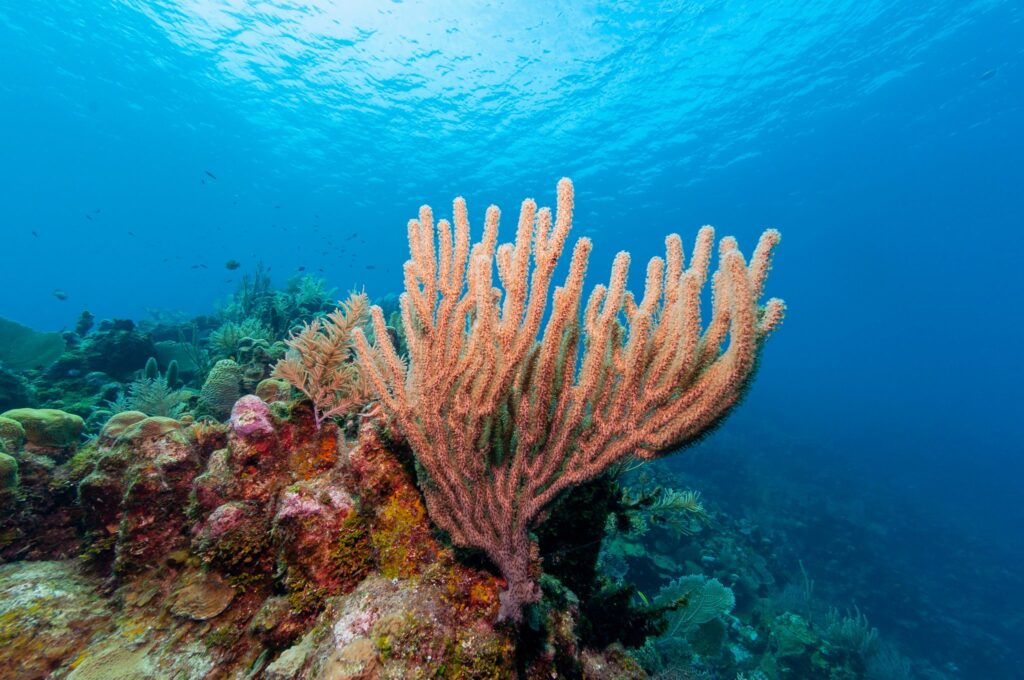The coral reef is in trouble, and we are to blame. Climate change is destroying these incredibly delicate and beautiful ecosystems. A coral reef can take 100,000 to 300,000 years to fully form, so when one dies, the home of countless marine life is destroyed completely. We will not be able to undo the damage we’ve done. Bleaching of most coral is one of the biggest issues, and climate change is fully responsible for it. Coral killing practices are in all of our daily lives. Here’s what to start to look out for.
1. Eating Fish
Overfishing is a massive problem, and the consumption and high demand for fish are responsible for it. There are several factors to mass fishing that actively harm aquatic life and coral. Nets and traps cast in the ocean pull in whatever fish they can, this often includes herbivorous fish. These plant nibbling creatures feed off the algae on coral, keeping them clean and happy, so they are essential for the well-being of the reefs.
Reef habitats near shore act as fish nurseries, and when fishermen cast nets near those habitats, they often catch small fish before they can reproduce, which diminishes populations, and once again harms the reefs themselves. Fishing debris is also quite damaging. The coral reefs are delicate, and leftover traps and nets can break or disfigure them.
Finally, coral reefs thrive off of their happy fish populations, and fishing companies can easily target large gatherings of fish during mating periods. They also catch a lot of big fish, who would normally produce a lot of young, which diminishes their population size rapidly.
The bottom line is that eating fish supports overfishing practices, so if you want to help save the reefs, the first thing to do is to stop eating them.
2. Sunscreen
While we’re sure traditional makeup isn’t great for the environment, the ingredients in sunscreen are the real coral killer. The chemicals that provide us UV protection soak into the tissue of the coral and cause bleaching, DNA damage, deformities, and even death. To make matters worse, a lot of the sunscreen we put on before swimming probably just washes off in the ocean. That means we aren’t even benefitting from it before it harms the reefs.
Every year, 14,000 tons of sunscreen wind up in oceans. Octocrylene is particularly harmful, and the levels in oceans are believed to be underestimated. We aren’t entirely sure how much of it we’ve pumped into the environment, which is terrifying.
Here are ingredients to look out for in your sunscreen:
- Oxybenzone
- Benzophenone-1
- Benzophenone-8
- OD-PABA
- 4-Methylbenzylidene camphor
- 3-Benzylidene camphor
- nano-Titanium dioxide
- nano-Zinc oxide
- Octinoxate
- Octocrylene
You might be surprised to find how often these ingredients pop up, but we can assure you, it is worth taking the time to find an eco-friendly option! There are tons of vegan, cruelty-free, and reef-safe sunscreens – you just have to look out for them!
3. Microplastics
Microplastics are everywhere. They are so abundant, we don’t even know how abundant they are. Every time we wash a polyester shirt, use certain cleaning products, or throw away a cigarette butt, we contribute to the massive quantity of microplastics in the environment. Therefore, it should come as no surprise that coral reefs have suffered from the product of our wasteful ways.
Seawater, sediment, and corals have all been found to have microplastics in them. The coral ingests the plastic, and this can make it produce more mucus, cause tissue necrosis, cause overgrowth, or simply just bleach it.
Those tiny plastics also have bacteria that can kill coral. They can also be deadly if ingested. It’s been shown that some coral choose to eat microplastics instead of their natural food, so they end up filling their stomachs and dying because the plastics contain absolutely no nutritional value.
4. Over Consuming
The more we buy, the more energy and resources are needed to meet our material demands. To start, fossil fuels are used to ship practically everything around the world. The fashion industry is also a culprit, and is incredibly destructive for coral reefs. From the pesticides used for farming, to dyes and the general high levels of waste produced by making clothing, coral reefs take a direct hit from the way we consume fashion. When we buy cheaply made clothing from companies that do not take the environment into consideration, we actively support their actions and what they stand for. The same can be said for supporting any other industry that continues to damage the environment, especially the reefs.
Small Changes, Big Impact
Think about the different aspects of your life that could be negatively impacting the coral reefs. You might be surprised just how many dish soaps and cleaning products flat out say they damage aquatic life. The oceans are absolutely essential to every creature on this earth living healthy and happy lives. We shouldn’t just protect it because we feel for the creatures and ecosystems, we have to protect it because our lives depend on it.
Article Credit: onegreenplanet
